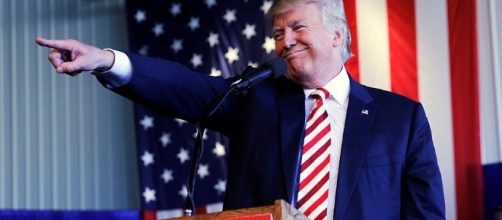The U.S. President Donald Trump is due to pronounce his first speech in the U.S. Congress on Tuesday, February 28, dominated by his Republican allies but whose independence and slow action could frustrate the reform plans of the impatient Head Of State.
Like his predecessors at the same time of the year, the President of the United States will speak at 9:00 pm (GMT Wednesday) in the Capital, in the Chamber of Representatives that has Senators, Ministers, judges of the Supreme Court and other notables of the republic. The Head of State will use this prime-time moment to chart the political and legislative path of the next year, justify military priority and give impetus to its economic and social reforms.
But his speech could also lead to divergences in his own camp.
What future for the Obamacare?
There are differences on the horizon between elected Republicans, particularly on health. In their constituencies, parliamentarians are heckled by their constituents, worried about the announced dislocation of the "Obamacare". Donald Trump and the Republicans have indeed promised to repeal the reform of Obama's iconic health care system, which has enabled more than 20 million Americans to subscribe to health insurance. But where to replace it?
There is a growing gulf within the Republican party between the Liberal wing, which includes Speaker Paul Ryan, who promotes a bold public disengagement, and pragmatists who are reluctant to dismantle a system that, despite its shortcomings, helped millions of their constituents.
Donald Trump himself blows hot and cold: he lets the Republican leaders of Congress, who could unveil a text in the next few days, but often insisted on the need to cover everyone
Negotiations on the 2018 Budget
The tensions between the executive and the legislature may be growing for the time being in the 2018 budget negotiations. The White House tenant wants to boost military spending by 9%, of the planet and cutting the appropriations of other ministries by the tax.
A disturbing arbitration for a hundred retired senior U.S army officers, including retired General David Petraeus, a former CIA director, who asked Donald Trump not to sacrifice the diplomatic budget, in a letter to Congress and the White House which was cited by CNN on Monday.

